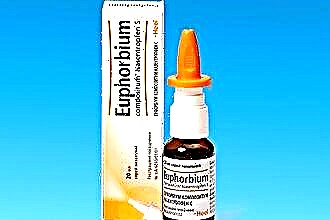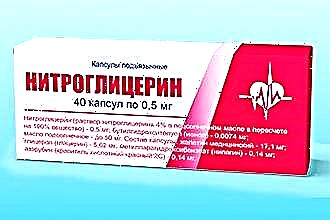The discovery of hydrogen peroxide - or, as you hear more often, hydrogen peroxide - took place in the early 19th century, and was made by the French chemist Louis Thénard. The search for a field of application took several decades, as a result of which the tool turned out to be useful not only in industry, but also in medicine. In the pharmacological classification, hydrogen peroxide is classified as an oxidizing agent. Over the years of practical use, the drug has gained popularity as a wonderful antiseptic. However, wound care is not the only way to use hydrogen peroxide. It is often prescribed to patients in otolaryngological hospitals, which makes the question natural: is it possible to drip hydrogen peroxide into the ear with otitis media and is it worth expecting a sufficient therapeutic effect?
Description

The chemical name of the drug sounds like hydrogen peroxide. Visual assessment of a substance requires attention to such characteristics as:
- transparency;
- colorlessness;
- lack of smell.
Since peroxide decomposes under the influence of light and when heated, it must be stored in dark glass vials, not left in direct sunlight. Smell may be present - it is subtle, described as “peculiar,” and in no case should it be harsh.
Hydrogen peroxide can have the following effects:
- antiseptic;
- deodorant;
- hemostatic.
The ability of hydrogen peroxide to stop blood becomes useful in cases of capillary bleeding. The formation of foam when applied to the wound surface helps to cleanse the wounds. In otolaryngology, the agent is mainly used to remove sulfur plugs.
You should be aware that hydrogen peroxide can cause allergies.
Action for otitis media
There is an opinion that peroxide, being an antiseptic, can have a fairly effective effect in otitis media and significantly alleviate the patient's condition. This method is supported, first of all, by the simplicity Implementation: you can drop hydrogen peroxide into your ear at any time. The drug is available because it is sold in pharmacies without restrictions at a reasonable price in comparison with other drugs. In addition, peroxide is time-tested - and this in itself suggests that the medicine cannot be bad.
Implementation: you can drop hydrogen peroxide into your ear at any time. The drug is available because it is sold in pharmacies without restrictions at a reasonable price in comparison with other drugs. In addition, peroxide is time-tested - and this in itself suggests that the medicine cannot be bad.
Treatment of otitis media with hydrogen peroxide is a method that cannot be used as the only treatment option. According to modern protocols, it is necessary to carry out complex therapy of the disease. The leading role in it belongs to antibacterial drugs. Antibiotics can be given in drops or taken in tablet form, injected.
Peroxide has a completely different effect than antibacterial agents. Studies have shown that it only briefly reduces the number of pathogenic microorganisms contained in the focus of inflammation. It will not be possible to achieve a full-fledged permanent sanitation with the help of hydrogen peroxide. The use of hydrogen peroxide for otitis media, flowing in an acute purulent form, is necessary not so much to influence the pathogenic flora, but to mechanically cleanse the ear canal from accumulated purulent masses.
Peroxide is usually used when there is thick pus that is difficult to remove.
Mode of application
An indication for use may be acute purulent otitis media in the stage of perforation. One of the prerequisites for recovery during this period is a free outflow of pus, which should not be allowed to remain in the ear - otherwise complications cannot be avoided. 3% hydrogen peroxide in the ear with otitis media is introduced by infusion, provoking the formation of copious foam. To remove the pus along with the foam, a cotton wool probe is used.
The procedure for cleansing the ear canal from pus can be performed by the patient independently. In this case, you must act carefully to avoid additional damage. It is necessary to repeat the removal of purulent masses 2-3 times a day.
Peroxide can cause an itching and burning sensation in the skin of the ear canal.
Otitis externa
A possible indication for the use of hydrogen peroxide is ear inflammation. We are talking about otitis externa, which develops in the absence of access to medical care after water has entered the ear. This applies to divers, as well as tourists who rest near water bodies, swim in them. It should be immediately emphasized that in this case, the drug cannot replace a full-fledged therapy. It is advisable to include it in the first aid kit, as a preparation before using essential drugs. Hydrogen peroxide is injected into the ears with otitis media:
- By instillation with a pipette (2-3 drops).
- Using a cotton swab soaked in the product.
- Using a cotton swab dipped in the product.
Regardless of the chosen method, it is necessary to dry the ear after 3 minutes (without active friction with sterile cotton wool, a napkin).
The removed swab is discarded and cannot be reused. A swab soaked in ointment (Triderm) or ear drops (Ofloxacin) is inserted into the ear canal. You cannot use these drugs at the same time, you must choose one. If the patient is worried about severe pain in the ear, you can take a pill of a drug from the group of non-steroidal anti-inflammatory drugs (Paracetamol, Ibuprofen). All the measures described only temporarily alleviate the condition. As soon as possible, the patient must be examined by a doctor.
In conclusion, we can say that the effectiveness of hydrogen peroxide is quite high only when used for direct indications. You can not limit the treatment regimen exclusively to him, refusing other drugs.



